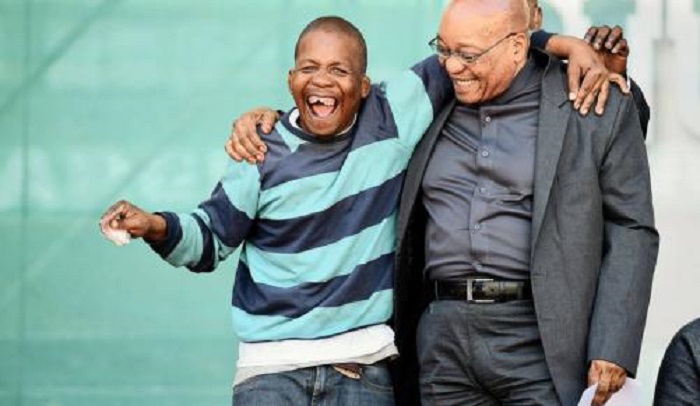President Jacob Zuma used Thursday’s June 16 commemorative event to appeal for an end to the spate of violence and protests, but hundreds of young people missed out on his message.
As Zuma was delivering his keynote address at Orlando Stadium in Soweto, many partied outside the stadium, drinking alcohol freely.
After the security staff barred alcohol from the stadium, many wasted no time in leaving the venue, and the nearby routes were soon turned into street parties as the youths indulged in booze. Bottles of whisky and wine lay strewn along the roads.
Even before Zuma could begin addressing those in the stadium, programme directors repeatedly reprimanded a few young males who were banging stadium cubicles with their feet.
Security personnel gave orders that the rowdy youths be removed from the stadium.
Some youths, seemingly oblivious to what was happening inside the stadium, didn’t even bother to enter the stadium. Instead, they chanted and drank as they marched up and down Mooki Street, holding up placards.
“We are the youth of South Africa and we need development,” read one such notice.
For others, June 16 meant drinking in public without getting into trouble with the law. They held their bottles up in the air in jubilation while playing loud music.
Different sounds came from all directions, blaring out loudly through speakers which were mostly placed on the backs of bakkies. Police who were patrolling the busy area watched the celebrations without flinching.
Earlier, before the official programme started, security guards kept a close eye on the crowd as ANC officials handed out T-shirts and food to those making their way into the stadium.
In his prepared speech, Zuma said no schools were burnt in 1976 to protest against Afrikaans as a medium of instruction and Bantu Education in general.
The country has recently seen violence stemming from political battles, unrest at tertiary institutions, service delivery protests and municipal demarcation issues.
In Vuwani, Limpopo, more than 20 schools were torched by residents angry at the incorporation of Vuwani into a newly-formed municipality.
“I wish to raise the matter of violent community protests again, as these are threatening to destroy the social fabric of our society,” Zuma said.
“We should remember that not a single school was burnt during the June 16, 1976 student uprising. Sadly, we have seen horrible incidents in recent times.”
He also slammed the violent nature of protests at institutions of higher learning as seen at the North West University earlier this year.
“Students have done the unthinkable and burnt university buildings on some campuses and destroyed other facilities and furniture, just to communicate that they cannot afford the fees.
“That conduct is unforgivable and totally unacceptable,” he said.
He also condemned the people who had burnt schools in Limpopo, adding that other communities were also destroying infrastructure.
“Another community decided to burn a local clinic which serves them, to demonstrate their unhappiness that it had electricity while the township experienced an electricity outage,” Zuma said, also condemning the burning of trains and factories.
“Such actions give an impression that we are going astray as a nation,” said Zuma, who was flanked by Deputy President Cyril Ramaphosa, Gauteng Premier David Makhura and Joburg mayor Parks Tau.
The commemoration of June 16 this year follows mass action by students last year through the Fees Must Fall movement. While it forced the government to suspend fee increases for the 2016 academic year, there are still concerns about lack of access to higher education for many school-leavers.
Zuma said education was a priority for the government and “receives the biggest chunk of the national budget”, while the funding for higher education was also being increased.
Makhura urged young people to emulate the 1976 youth and not shy away from taking part in initiatives to tackle problems facing the country today.
[Source: The Star]






 WhatsApp us
WhatsApp us 

